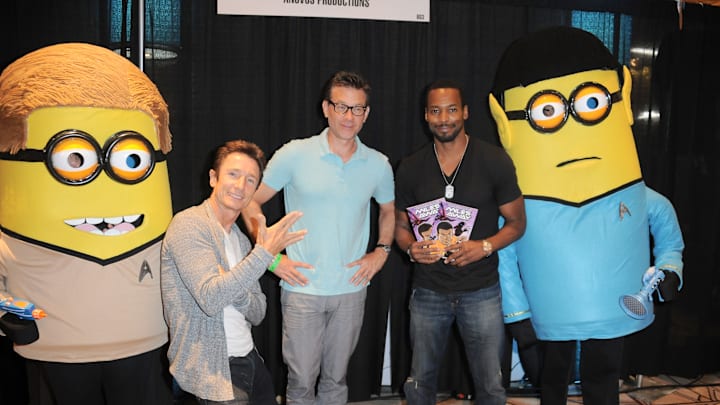Star Trek: Enterprise was one of the best, and easily shortest ran shows of all time. It was a compelling story of the first warp-five ship in all of Starfleet, all while featuring some of the best casting and character writing in franchise history. Among the major reasons to really give this show a chance is Connor Trinneer, who played Charles "Trip" Tucker III.
Trip as he was referred to on the show was the second-highest ranking officer and was the chief engineer of The NX-01 Enterprise, the first Starfleet vessel to bear that iconic name. For fans, Tucker was easily a fan favorite and as the show evolved, so did his character, and it was something that Trinneer enjoyed.
Trinneer referred to the character as an experience he was "very lucky" to have, the reasons for that seem a bit deeper than just the success that came with it. During Trek Talk 3 (via ScreenRant), Trinneer talked about how cathartic the show was for him while working through his grief about the terror attacks on Sept. 11, 2001.
"I don’t think that you can watch our show, and I’ve said this before, without thinking about that, contextually, that 9/11 informed all of it. And when Trip lost his sister… sometimes acting can be sort of therapeutic. I got to express feelings of how 9/11 had operated on me, and through work, I was able to really come to terms in my own way with what that was. So the change in Trip, I found really satisfying. The struggle, which I think everybody was dealing with, [of] ‘What’s the right thing to do? What do you wanna do right now? Where are you going? Who are you gonna be after all of this?’ And that exploration of him was really satisfying and kind of fascinating to be a part of. I feel very lucky."
Trinneer's role got heavier in seasons three and four, and the impact that his character had on the overall narrative became a lot more tangible and relatable. The anger and fear that he embraced was a feeling many people in the US were dealing with, so it was an honest portrayal of how many people felt about things just a few years removed from such a moment in time.
